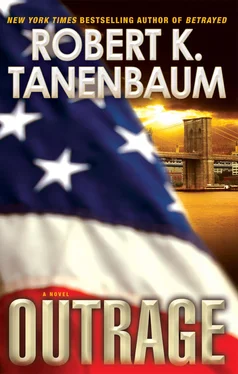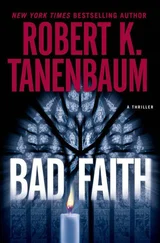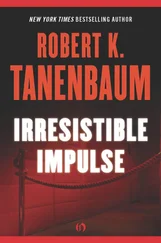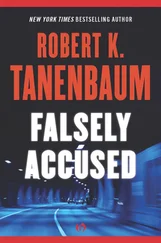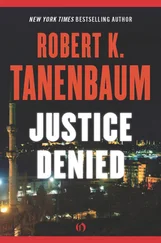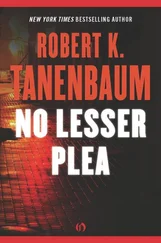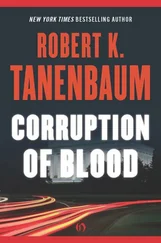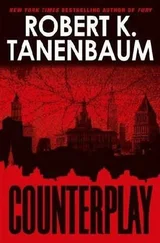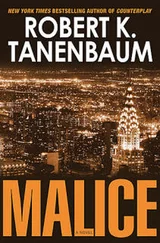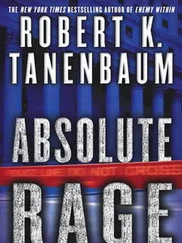Robert Tanenbaum - Outrage
Здесь есть возможность читать онлайн «Robert Tanenbaum - Outrage» весь текст электронной книги совершенно бесплатно (целиком полную версию без сокращений). В некоторых случаях можно слушать аудио, скачать через торрент в формате fb2 и присутствует краткое содержание. Жанр: Исторический детектив, на английском языке. Описание произведения, (предисловие) а так же отзывы посетителей доступны на портале библиотеки ЛибКат.
- Название:Outrage
- Автор:
- Жанр:
- Год:неизвестен
- ISBN:нет данных
- Рейтинг книги:3 / 5. Голосов: 1
-
Избранное:Добавить в избранное
- Отзывы:
-
Ваша оценка:
- 60
- 1
- 2
- 3
- 4
- 5
Outrage: краткое содержание, описание и аннотация
Предлагаем к чтению аннотацию, описание, краткое содержание или предисловие (зависит от того, что написал сам автор книги «Outrage»). Если вы не нашли необходимую информацию о книге — напишите в комментариях, мы постараемся отыскать её.
Outrage — читать онлайн бесплатно полную книгу (весь текст) целиком
Ниже представлен текст книги, разбитый по страницам. Система сохранения места последней прочитанной страницы, позволяет с удобством читать онлайн бесплатно книгу «Outrage», без необходимости каждый раз заново искать на чём Вы остановились. Поставьте закладку, и сможете в любой момент перейти на страницу, на которой закончили чтение.
Интервал:
Закладка:
Moishe let the image linger before he went on. “For the Jews the guards had kept alive to work, there were many jobs around the camp. In general, these workers were treated better-even allowed to keep and use medicine they found on the poor souls chosen to die-and given more food. After all, they had to maintain their strength.”
The old man cleared his throat. “But the very worst of the jobs was as a Sonderkommando, which means ‘special unit’ in German. And their primary responsibility was to dispose of the corpses from the gas chambers.” The old man paused as he looked at the boys. “For a time, I was a Sonderkommando.”
“How did you become a Sonderkommando?” Zak asked.
“I was with my father when we were forced to strip and then herded toward those gas chambers past the smirking SS guards and Ukrainians who laughed and hit us with sticks to make us keep moving,” Moishe answered. “We had just about reached the building when a German officer, Hans Schultz, reached out and grabbed me by the arm… I wanted to stay with my father and held on to his hand, but he pulled away and said, ‘Do not forget.’ And then he was gone into the building, and I never saw him again.”
Moishe paused and dipped his head in sorrow as tears filled his eyes and began to stream down his cheeks. They sat in silence. “I apologize for the emotion,” he said finally, “but it happens sometimes and leaves me unable to speak.”
“Do you want to continue some other time?” Karp suggested.
“No, no, for heaven’s sake, I’m okay now,” the old man replied. “As I said, I never saw my father again. But I was spared not through some kindness, but because the Germans and their Ukrainian dogs did not want to do the dirty work. We worked in teams. Some cleaned out the killing rooms, the bodies so tightly packed that even when they were dead, there was no room to fall down. Rail tracks ran up to the back of the building; bodies were hauled out the rear doors and loaded on trolleys to be taken to pits, where other Sonderkommandos stacked them like cordwood for efficiency, then burned and buried them.”
Sobelman sighed and it took a moment before he could continue. “But there were many jobs for the Sonderkommandos. Some gathered the hair in the shaving hut and sorted it by color and quality-most going to stuff mattresses, though the best was used for wigs. My job was to remove gold fillings from the teeth of the corpses before they were placed on the trolleys for the burial pits.”
Zak scowled. “Why did the Sonderkommandos go along with this?”
“Zak!” Giancarlo snapped. “That’s rude.”
“No, no, it’s a legitimate question,” Moishe responded. He turned to Zak. “The simple answer is that we had no choice. It was do as we were told or be killed, or commit suicide-and there were those who chose either of those last two options as well. However, the urge to survive is very powerful. Some because they fear death. But for others, such as myself, it was with the hope that someday I might exact revenge on my family’s murderers, as well as carry out my father’s wish that I not forget, which is why I think it is important to tell you boys my story. So that you never forget, either.”
Even being a slave laborer was no guarantee of staying alive, Moishe said. “Because of our intimate knowledge of their mass murders the Nazis and their minions considered us Geheimnistrager — the ‘bearers of secrets.’ The Sonderkommandos were kept apart from the others in the camp so that we could not tell them what we’d seen and experienced. They did not want some escapee or survivor to tell the world about their evil deeds. In fact, they were so worried that the Sonderkommandos were regularly gassed as well-their deaths being particularly cruel because they knew what was going to happen even sooner than the others.”
“Why weren’t you gassed?” Zak asked, shooting a quick glance at his brother.
Moishe shook his head sadly. “Ironically, I was spared because of my father’s occupation. One day, a German officer named Johann Klier, who had owned his own bakery before the war and ran the camp’s, sought me out. Other prisoners who had known my father had told Herr Klier that I was an experienced baker. So I went from pulling the teeth of corpses to baking bread.”
As he passed a hand over his eyes, it took the others a moment to realize that he was weeping. But when Karp offered another cup of coffee “and a chance to catch your breath,” he waved him off. “Forgive an old man his tears. No matter how many times I have told this story, the pain and grief are just as raw.”
He turned back to the boys. “By the fall of 1943, more than two hundred and fifty thousand people had been murdered at Sobibor and the Germans were starting to worry that the war wasn’t going so well and that word of their crimes would get out. They planned to wipe out all traces of the camp and every inmate in it. When word filtered to the Sonderkommandos that they were to be gassed in October, we rose up.
“On the morning of October 14, led by a man named Leon Feldhendler and a Red Army lieutenant named Alexander ‘Sasha’ Perchorsky, the Sonderkommandos and some of the other prisoners who joined in lured the SS guards in the camp to their deaths. We cut the electricity and telephone lines and broke into the camp armory. Then we began to fight the Ukrainian guards before escaping, though many of us died in the minefields surrounding the camp.
“There were six hundred of us in the camp that day,” Moishe recalled. “About a hundred and fifty were killed by guards or the mines. Three hundred of us escaped. Within a week, one hundred of us had been recaptured or killed. Everyone who’d been left behind at the camp was murdered and buried. The Germans then bulldozed the camp and turned it into farmland, as if it had never existed.”
Moishe’s eyes glittered now with anger. “But those of us who escaped and survived did not forget. I eventually met and joined up with Jewish partisans who were fighting the Germans. The ember of revenge burned deep in my chest, and I killed my enemies with great pleasure.”
The old man continued. “One day I was leading a small company of men when they captured three German SS officers whose car had broken down. I recognized them from Sobibor, including the officer who had pulled me away from my father, Hans Schultz. When I forced them to their knees on the road, Schultz started crying and begging for his life. ‘I was only doing as I was told,’ he cried. ‘You cannot imagine the nightmares I endure. The sound of people screaming and begging for their lives. The little children crying. And that horrible wailing and the sound of them crawling over each other to try to escape when the gas began to enter the room.’ That bastard looked at me like I would understand. ‘You were there, Moishe,’ he said. ‘You remember how sometimes when you opened the doors to remove them, some of them would be missing fingernails and have just bloody stumps because they had been clawing at the walls and each other.’ Terrible. Terrible.”
“What did you do?” Zak asked.
The old man sighed. “I played the part of judge, jury, and, may God forgive me, lord high executioner. With my anger raging inside, I decided that the punishment must fit the crime. I remembered how these men had laughed as all those innocent people had cried out and struggled to stay alive. So I had my men strangle them with cords, starting with Schultz’s subordinates. And while they kicked and dug at the cords with their fingernails, their faces turning purple and the blood vessels bursting in their eyes, I demanded that Schultz laugh.”
“Did he?” Giancarlo asked quietly.
“Remember what I said about the will to survive?” Moishe said. “Yes, he laughed as though at a great joke. And then I threw the cord around his neck myself and cried-which I still do at the memory-as I choked the life out of him.”
Читать дальшеИнтервал:
Закладка:
Похожие книги на «Outrage»
Представляем Вашему вниманию похожие книги на «Outrage» списком для выбора. Мы отобрали схожую по названию и смыслу литературу в надежде предоставить читателям больше вариантов отыскать новые, интересные, ещё непрочитанные произведения.
Обсуждение, отзывы о книге «Outrage» и просто собственные мнения читателей. Оставьте ваши комментарии, напишите, что Вы думаете о произведении, его смысле или главных героях. Укажите что конкретно понравилось, а что нет, и почему Вы так считаете.
